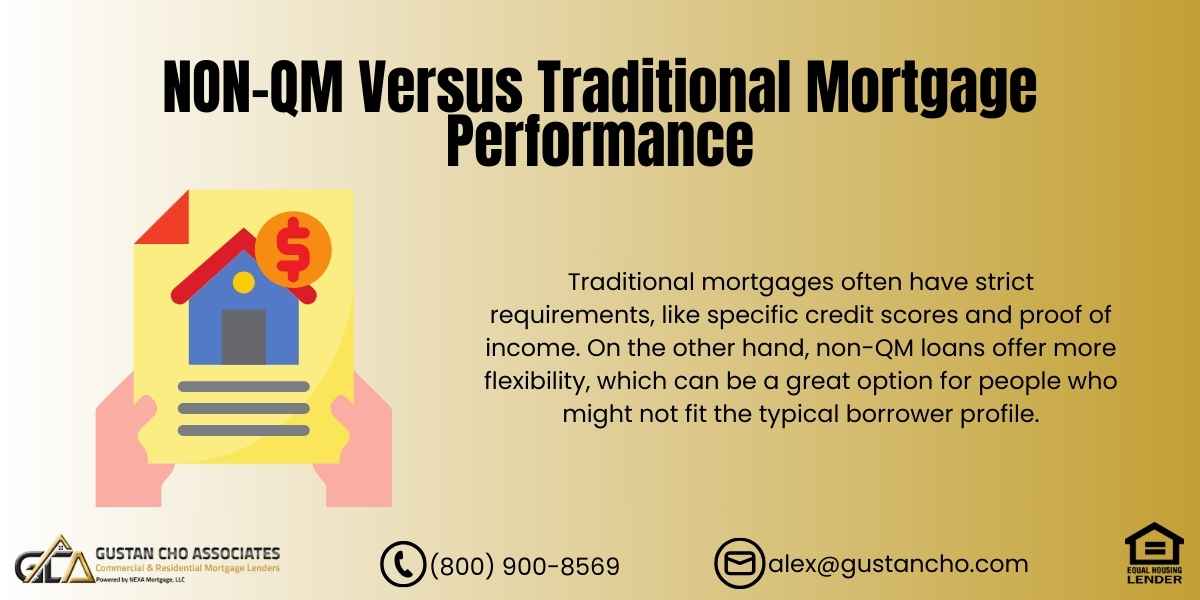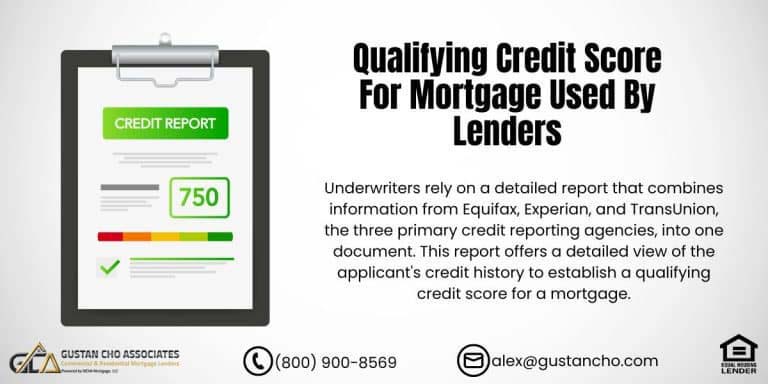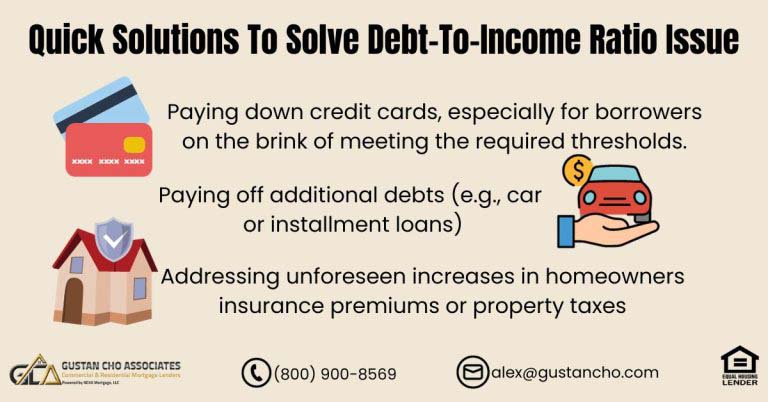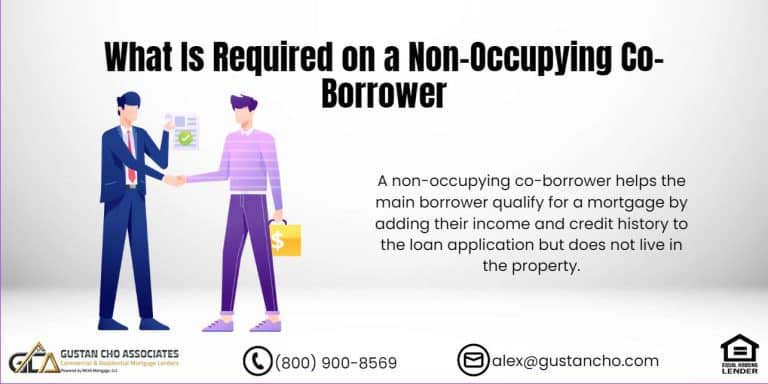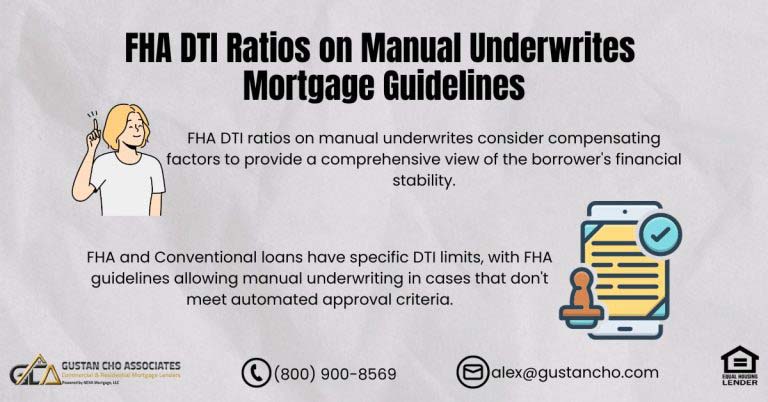NON-QM Versus Traditional Mortgage: Which is Right for You?
Finding your way through the complex array of mortgage choices can seem daunting. As we move into 2024, the world of finance is changing quickly, and it’s important to know the key differences between non-QM versus traditional mortgages. If you are thinking about buying a home or refinancing your mortgage, knowing these differences will help you choose the best option.
Traditional mortgages often have strict requirements, like specific credit scores and proof of income. On the other hand, non-QM loans offer more flexibility, which can be a great option for people who might not fit the typical borrower profile.
This guide from Gustan Cho Associates is designed to help you understand the benefits and drawbacks of both types of mortgages. Understanding the benefits of each choice will help you identify the mortgage that best aligns with your specific financial requirements and objectives.
Understanding Mortgages: Non-QM and Traditional
What is a Non-QM Loan?
Non-QM loans—short for non-qualified mortgages—break the traditional mortgage mold. These are designed for borrowers who don’t fit the conventional mortgage framework, often due to self-employment, fluctuating income, or past financial mishaps. Unlike traditional loans, non-QM loans do not adhere strictly to the federal guidelines set by Fannie Mae and Freddie Mac.
Key Features of Non-QM Loans:
- Flexible Credit Requirements: Credit scores can be as low as 500.
- Diverse Income Documentation: Bank statement loans allow self-employed borrowers to verify income using bank statements instead of tax returns.
- No PMI Required: Even with less than 20% down, you won’t pay private mortgage insurance.
- Versatile Use: Suitable for primary residences, second homes, or investment properties.
Traditional Mortgages Explained
When thinking about home loans, many individuals often envision conventional mortgages. These loans usually fall into two main categories: conforming loans that adhere to guidelines established by Fannie Mae and Freddie Mac and government-backed options, including FHA, VA, and USDA loans. The latter offers significant advantages, such as reduced down payment requirements and government insurance, making them an attractive choice for many buyers.
Key Features of Traditional Mortgages:
- Stricter Credit Scores: Generally require a credit score of 620 or higher.
- PMI Requirements: PMI is necessary if you put down less than 20%.
- Regulated Loan Limits: Loan amounts are capped according to guidelines.
- Income Verification: Requires traditional forms of income documentation.
Performance: Non-QM Versus Traditional Mortgage
Recent data suggests that non-QM loans have a strong performance track record. Despite concerns over their flexible criteria, non-QM loan defaults are comparably low. This robust performance indicates the thorough underwriting processes that assess borrowers’ ability to pay rather than just their credit history or income type.
Market Trends in 2024
The interest in non-QM loans has rapidly increased as more borrowers seek flexible and innovative financing options. These loans address various financial circumstances, enhancing the affordability of homeownership for many people who might not meet the requirements for conventional mortgage options.
The growing demand for non-QM loans highlights a shift in the market, reflecting the changing needs of borrowers in today’s economy.
Given the recent economic shifts and the ever-evolving real estate landscape, non-QM loans have emerged as a crucial alternative for numerous individuals. They provide opportunities for those who could be sidelined in their quest for homeownership due to unique income situations, credit profiles, or other factors. As more people explore these financing options, it’s clear that non-QM loans are becoming an essential tool in the journey toward owning a home.
Who Benefits Most From Non-QM Loans?
Non-QM loans are particularly advantageous for:
- Self-Employed Individuals: Those with non-traditional income streams.
- Recovering Borrowers: Individuals with recent credit events like bankruptcies or foreclosures but have since recovered financially.
- Real Estate Investors: Those looking to finance properties that might not qualify under traditional guidelines.
Case Scenario
Imagine you’re a self-employed graphic designer. Traditional lenders have denied your mortgage application because your income varies each month. A non-QM loan through Gustan Cho Associates could be your pathway to homeownership, using your bank statements to demonstrate income stability over the past 12 months.
Down Payment and Mortgage Rates: A Comparative Look
Non-QM Loans
- Down Payment: Ranges from 10% to 30%, based on credit risk and loan type.
- Mortgage Rates: Typically higher due to perceived risk but can be competitive, especially with a higher down payment or excellent credit.
Traditional Mortgages
- Down Payment: You can secure conventional loans for as little as 3%, while VA and USDA loans may even offer qualification with zero down payment.
- Mortgage Rates: Generally lower, reflecting the lower risk underwritten by government guidelines.
Using Non-QM Loans As A Bridge
Many people turn to non-QM loans to improve their financing options later on. For example, suppose you had some late mortgage payments in the last year because of unexpected costs but have now gotten your finances back on track. In that case, a non-QM loan can make it possible for you to immediately buy a new home. This type of loan gives you a chance to own a home despite earlier payment issues.
After you’ve made a year of on-time mortgage payments with the non-QM loan, you may be better positioned to switch to a more traditional mortgage.
This is where the differences between non-QM versus traditional mortgage loans come into play. Traditional mortgages often have lower interest rates and can save you money in the long run, so refinancing after a year can be a smart move if your financial situation has improved.
Take First Step Toward Making Your Dream A Reality
Apply Online And Get recommendations From Loan Experts
The Non-QM Process Simplified
Getting a non-QM loan through Gustan Cho Associates is straightforward:
- Pre-Approval: Understand your buying power and budget.
- Document Submission: Provide necessary documents, including bank statements for income verification.
- Underwriting: Our team reviews your situation to craft a loan that fits your needs.
- Closing: With all paperwork in order, close on your property confidently.
Future of Non-QM and Traditional Mortgages
As we head into 2025, the world of mortgages is changing to meet the needs of more people. Non-QM loans, which stand for non-qualified mortgages, are expected to become more popular. These loans are intended for individuals who may not meet the rigid criteria set by conventional mortgages.
This means that those with unique financial situations can find options that work better for them.
On the other hand, traditional mortgages will still play a key role in the market. They offer stable and predictable financing for those who qualify under standard requirements. So, when comparing non-QM versus traditional mortgage options, borrowers need to consider their own financial situations. Recognizing these differences can help people make informed choices about the best loan for their needs.
Conclusion: Making the Right Choice
Choosing between a non-QM and a traditional mortgage depends on your financial situation, career, credit history, and homeownership goals. At Gustan Cho Associates, we’re committed to guiding you through this decision with expert advice and tailored mortgage solutions.
In fact, Gustan Cho Associates recently launched our Asset-Depletion Mortgage, investor cash-flow mortgages, investment property loans, and fix and flip loan programs to help borrowers from different walks of life and financial situations.
Ready to explore your mortgage options? Call or text us today at 800-900-8569, email alex@gustancho.com or visit our website. Whether leaning towards a non-QM loan or a traditional mortgage, we’re here to help you secure the financing you need to own your dream home.
Frequently Asked Questions About Non-QM Versus Traditional Mortgage:
Q: What is a Non-QM Loan?
A: A non-QM loan represents a category of mortgage that operates outside the conventional guidelines established by the government for standard loans. It’s good for people who don’t have regular jobs or who have had money troubles in the past.
Q: Who Should Consider a Non-QM Loan?
A: If you’re self-employed, had a bankruptcy or foreclosure recently, or your income varies a lot, a non-QM loan might fit your situation better than a traditional mortgage.
Q: Can I Get a Non-QM Loan with a Low Credit Score?
A: Yes, you can! Non-QM loans allow for lower credit scores, sometimes as low as 500, which makes them accessible if you’ve had credit issues.
Q: What are the Main Benefits of Traditional Mortgages?
A: Traditional mortgages often come with lower interest rates. They are easier to deal with if you meet the usual requirements like a stable job and a good credit score.
Q: Do Non-QM Loans Require Private Mortgage Insurance (PMI)?
A: No, one of the big pluses with non-QM loans is that you don’t have to pay PMI, even if your down payment is less than 20%.
Q: What Kind of Down Payment do I Need for a Non-QM Loan?
A: For non-QM loans, the down payment usually ranges from 10% to 30%. The down payment can vary based on your credit score and the kind of property you are buying.
Q: How do Non-QM Loans Work if I’m a Real Estate Investor?
A: Non-QM loans are flexible and can be used for investment properties that might not qualify for traditional loans, making them a great tool for investors.
Q: What Should I Know About the Interest Rates on Non-QM Loans?
A: Interest rates on non-QM loans are usually higher because they’re considered riskier, but they can be competitive, especially if you make a larger down payment or have a higher credit score.
Q: Can I Use a Non-QM Loan as a Bridge Loan?
A: Absolutely! Many people use non-QM loans as a temporary solution to buy a home and then switch to a traditional mortgage once their financial situation improves.
Q: How Can I Apply for a Non-QM or Traditional Mortgage with Gustan Cho Associates?
A: Getting started is easy! Just give us a call or send us an email, and we’ll guide you through the pre-approval process to determine your loan amount and loan option.
This blog about “NON-QM Versus Traditional Mortgage Performance” was updated on January 2nd, 2025.


